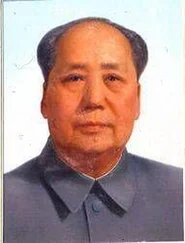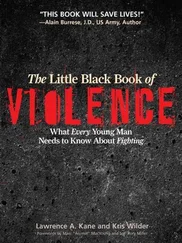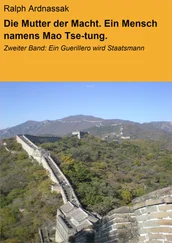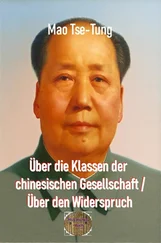Tse-tung Mao - The Little Red Book
Здесь есть возможность читать онлайн «Tse-tung Mao - The Little Red Book» весь текст электронной книги совершенно бесплатно (целиком полную версию без сокращений). В некоторых случаях можно слушать аудио, скачать через торрент в формате fb2 и присутствует краткое содержание. Жанр: Политика, на английском языке. Описание произведения, (предисловие) а так же отзывы посетителей доступны на портале библиотеки ЛибКат.
- Название:The Little Red Book
- Автор:
- Жанр:
- Год:неизвестен
- ISBN:нет данных
- Рейтинг книги:5 / 5. Голосов: 1
-
Избранное:Добавить в избранное
- Отзывы:
-
Ваша оценка:
- 100
- 1
- 2
- 3
- 4
- 5
The Little Red Book: краткое содержание, описание и аннотация
Предлагаем к чтению аннотацию, описание, краткое содержание или предисловие (зависит от того, что написал сам автор книги «The Little Red Book»). Если вы не нашли необходимую информацию о книге — напишите в комментариях, мы постараемся отыскать её.
The Little Red Book — читать онлайн бесплатно полную книгу (весь текст) целиком
Ниже представлен текст книги, разбитый по страницам. Система сохранения места последней прочитанной страницы, позволяет с удобством читать онлайн бесплатно книгу «The Little Red Book», без необходимости каждый раз заново искать на чём Вы остановились. Поставьте закладку, и сможете в любой момент перейти на страницу, на которой закончили чтение.
Интервал:
Закладка:
Ibid . p. 18.
You can't solve a problem? Well, get down and investigate the present facts and its past history! When you have investigated the problem thoroughly, you will know how to solve it. Conclusions invariably come after investigation, and not before. Only a blockhead cudgels his brains on his own, or together with a group, to "find a solution" or "evolve an idea" without making any investigation. It must be stressed that this cannot possibly lead to any effective solution or any good idea.
Oppose Book Worship (May 1930), 1st pocket ed., p. 2.
Investigation may be likened to the long months of pregnancy, and solving a problem to the day of birth. To investigate a problem is, indeed, to solve it.
Ibid., p. 3.
[With the Marxist-Leninist attitude,] a person applies the theory and method of Marxism-Leninism to the systematic and thorough investigation and study of the environment. He does not work by enthusiasm alone but, as Stalin says, combines revolutionary sweep with practicalness.
"Reform Our Study" (May 1941), Selected Works, Vol. III, p. 22.
The only way to know conditions is to make social investigations, to investigate the conditions of each social class in real life. For those charged with directing work, the basic method for knowing conditions is to concentrate on a few cities and villages according to a plan and, using the fundamental viewpoint of Marxism, i.e., the method of class analysis, make a number of thorough investigations.
"Preface and Postscript to Rural Surveys" (March and April 1941), Selected Works, Vol. III, p. 11.*
A fact-finding meeting need not be large; from three to five or seven or eight people are enough. Ample time must be allowed and an outline for the investigation must be prepared; furthermore, one must personally ask questions, take notes and have discussions with those at the meeting. Therefore one certainly cannot make an investigation, or do it well, without zeal, a determination to direct one's eyes downward and a thirst for knowledge, and without shedding the ugly mantle of pretentiousness and becoming a willing pupil.
Ibid ., p. 12.
A commander's correct dispositions stem from his correct decisions, his correct decisions stem from his correct judgements, and his correct judgements stem from a thorough and necessary reconnaissance and from pondering on and piecing together the data of various kinds gathered through reconnaissance. He applies all possible and necessary methods of reconnaissance, and ponders on the information gathered about the enemy's situation, discarding the dross and selecting the essential, eliminating the false and retaining the true, proceeding from the one to the other and from the outside to the inside; then, he takes the conditions on his own side into account, and makes a study of both sides and their interrelations, thereby forming his judgements, making up his mind and working out his plans. Such is the complete process of knowing a situation which a military man goes through before he formulates a strategic plan, a campaign plan or a battle plan.
"Problems of Strategy in China 's Revolutionary War" (December 1936), Selected Works, Vol. I. p. 188.
24. CORRECTING MISTAKEN IDEAS
Even if we achieve gigantic successes in our work, there is no reason whatsoever to feel conceited and arrogant. Modesty helps one to go forward, whereas conceit makes one lag behind. This is a truth we must always bear in mind.
"Opening Address at the Eighth National Congress of the Communist Party of China " (September 15, 1956).
With victory, certain moods may grow within the Party - arrogance, the airs of a self-styled hero, inertia and unwillingness to make progress, love of pleasure and distaste for continued hard living. With victory, the people will be grateful to us and the bourgeoisie will come forward to flatter us. It has been proved that the enemy cannot conquer us by force of arms. However, the flattery of the bourgeoisie may conquer the weak-willed in our ranks. There may be some Communists, who were not conquered by enemies with guns and were worthy of the name of heroes for standing up to these enemies, but who cannot withstand sugar-coated bullets; they will be defeated by sugar-coated bullets. We must guard against such a situation.
"Report to the Second Plenary Session of the Seventh Central Committee of the Communist Party of China " (March 5, 1949), Selected Works, Vol. IV, p. 374.
Many things may become baggage, may become encumbrances if we cling to them blindly and uncriticaliy. Let us take some illustrations. Having made mistakes, you may feel that, come what may, you are saddled with them and so become dispirited; if you have not made mistakes, you may feel that you are free from error and so become conceited. Lack of achievement in work may breed pessimism and depression, while achievement may breed pride and arrogance. A comrade with a short record of struggle may shirk responsibility on this account, while a veteran may become opinionated because of his long record of struggle. Worker and peasant comrades, because of pride in their class origin, may look down upon intellectuals, while intellectuals, because they have a certain amount of knowledge, may look down upon worker and peasant comrades. Any specialized skill may be capitalized on and so may lead to arrogance and contempt of others. Even one's age may become ground for conceit. The young, because they are bright and capable, may look down upon the old; and the old, because they are rich in experience, may look down upon the young. All such things become encumbrances or baggage if there is no critical awareness.
"Our Study and the Current Situation" (April 12, 1944), Selected Works, Vol. III, p. 173.*
Some comrades in the army have become arrogant and high-handed in their behaviour towards the soldiers, the people, the government and the Party, always blaming the comrades doing local work but never themselyes, always seeing their own achievements but never their own shortcomings, and always welcoming flattery but never criticism… the army must endeavour to eradicate these faults.
"Get Organized!" (November 29, 1943), Selected Works, Vol. III, p. 159.*
Hard work is like a load placed before us, challenging us to shoulder it. Some loads are light, some heavy. Some people prefer the light to the heavy; they pick the light and shove the heavy on to others. That is not a good attitude. Some comrades are diiferent; they leave ease and comfort to others and take the heavy loads themselves; they are the first to bear hardships the last to enjoy comforts. They are good comrades. We should all learn from their communist spirit.
"On the Chungking Negotiations" (October 17, 1945), Selected Works, Vol. IV, p. 58.*
There are not a few people who are irresponsible in their work, preferring the light to the heavy, shoving the heavy loads on to others and choosing the easy ones for themselves. At every turn they think of themselves before others. When they make some small contribution, they swell with pride and brag about it for fear that others will not know. They feel no warmth towards comrades and the people but are cold, indifferent and apathetic. In fact such people are not Communists, or at least cannot be counted as true Communists.
"In Memory of Norman Bethune" (December 21, 1939), Selected Works, Vol. II, pp. 337-38.*
Those who assert this kind of "independence" are usually wedded to the doctrine of "me first" and are generally wrong on the question of the relationship between the individual and the Party. Although in words they profess respect for the Party, in practice they put themselves first and the Party second. What are these people after? They are after fame and position and want to be in the limelight. Whenever they are put in charge of a branch of work, they assert their "independence". With this aim, they draw some people in, push others out and resort to boasting, flattery and touting among-the comrades, thus importing the vulgar style of the bourgeois political parties into the Communist Party. It is their dishonesty that causes them to come to grief. I believe we should do things honestly, for without an honest attitude it is absolutely impossible to accomplish anything in this world.
Читать дальшеИнтервал:
Закладка:
Похожие книги на «The Little Red Book»
Представляем Вашему вниманию похожие книги на «The Little Red Book» списком для выбора. Мы отобрали схожую по названию и смыслу литературу в надежде предоставить читателям больше вариантов отыскать новые, интересные, ещё непрочитанные произведения.
Обсуждение, отзывы о книге «The Little Red Book» и просто собственные мнения читателей. Оставьте ваши комментарии, напишите, что Вы думаете о произведении, его смысле или главных героях. Укажите что конкретно понравилось, а что нет, и почему Вы так считаете.











